
Front_Office_Operations
.pdf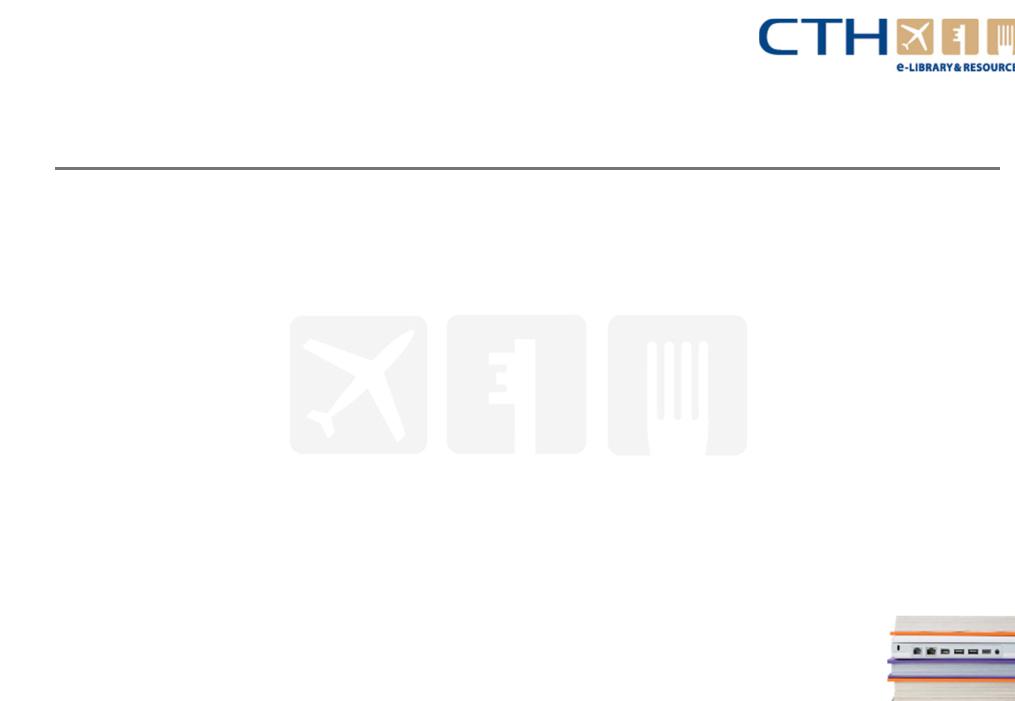
Chapter 8– Guest services and communications
Mail services
3.1 Handling incoming mail and messages continued…
If mail arrives for guests whose names are not on the current guest index, the mail handler check the arrivals list and/or the reservation records.
●If the guest is expected, but has not yet arrived, the mail can be held at Front Office, a 'mail advice' slip or message added to the guests reservation file, to alert front desk that ma awaiting the guest when (s)he checks in.
●If the guest has already left the hotel, mail can be forwarded to the guests address (as found on the registration card). If a departing guest expects mail, (s)he may be asked to fill out a 'mail forwarding‘ form, with a forwarding address, a request to forward mail for a specified period, and perhaps an authorisation for the hotel to charge any costs incurred. A log should be kept of all mail forwarded to guests, in case of subsequent queries and disputes.
www.cthresources.com |
Page 461 |
|
www.cthawards.com |

Chapter 8– Guest services and communications
Mail services
3.1 Handling incoming mail and messages continued…
Secured mail
Secured mail (such as registered mail or courier deliveries) may be urgent or contain valuable items or documents: it will generally require a signature upon receipt, and in some circumstances may only be signed for by the target recipient, on proof of identity. If a Front Office staff member signs for a piece of mail, its safe delivery becomes the responsibility of the hotel, so:
●Only trustworthy staff members should be authorised to sign for, and take custody of, such deliveries
●The hotel should keep a log of secure mail received, including the registration number, date/time received, addressee, date collected and guest signature (to confirm receipt)
●Secure mail should be regarded as valuable and placed in the hotel safe or a locked drawer
●A mail advice message should be immediately left or sent to the guest
●Guests should be asked to sign for the item on collection, showing proof of identity
www.cthresources.com |
Page 462 |
|
www.cthawards.com |
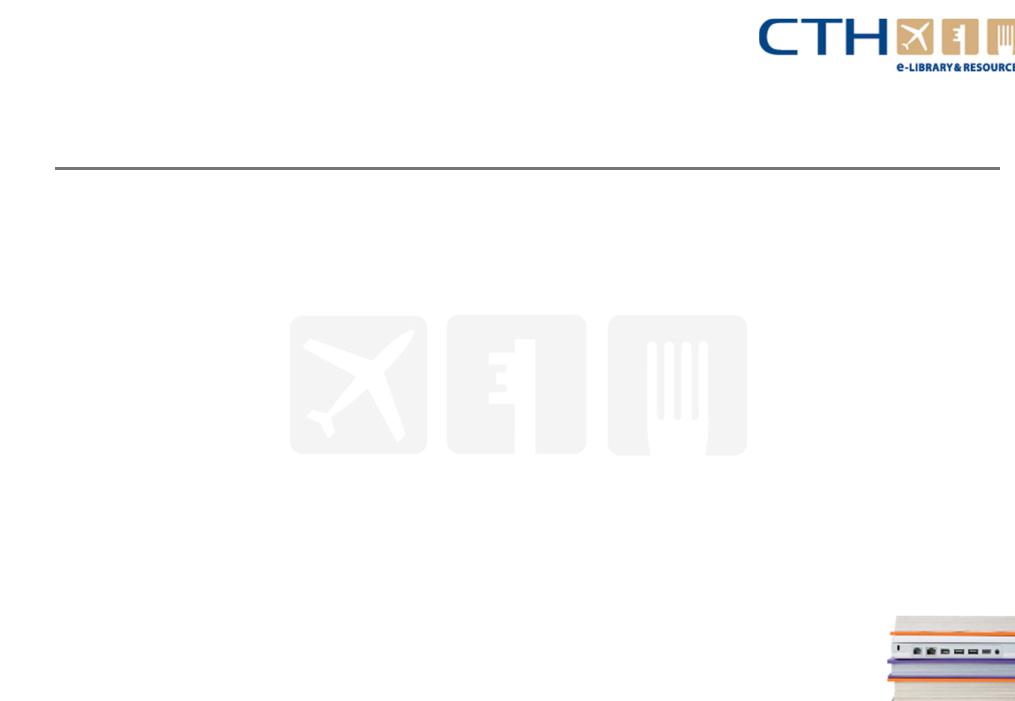
Chapter 8– Guest services and communications
Mail services
3.2 Handling outgoing mail
Front desk may have the responsibility of collecting all mail being sent out from the various departments of the hotel, arranging for delivery to the post office, and recording postage charges. This may involve:
●Mail sorting
●Weighing (since postage is calculated by weight)
●Affixing stamps or using a 'franking' machine [illustrated] to stamp envelopes as 'postage paid' (by
●prior arrangement with the post office)
●Delivering mail to the post office (or arranging for its collection)
●Recording the quantity and cost of mail sent out
www.cthresources.com |
Page 463 |
|
www.cthawards.com |
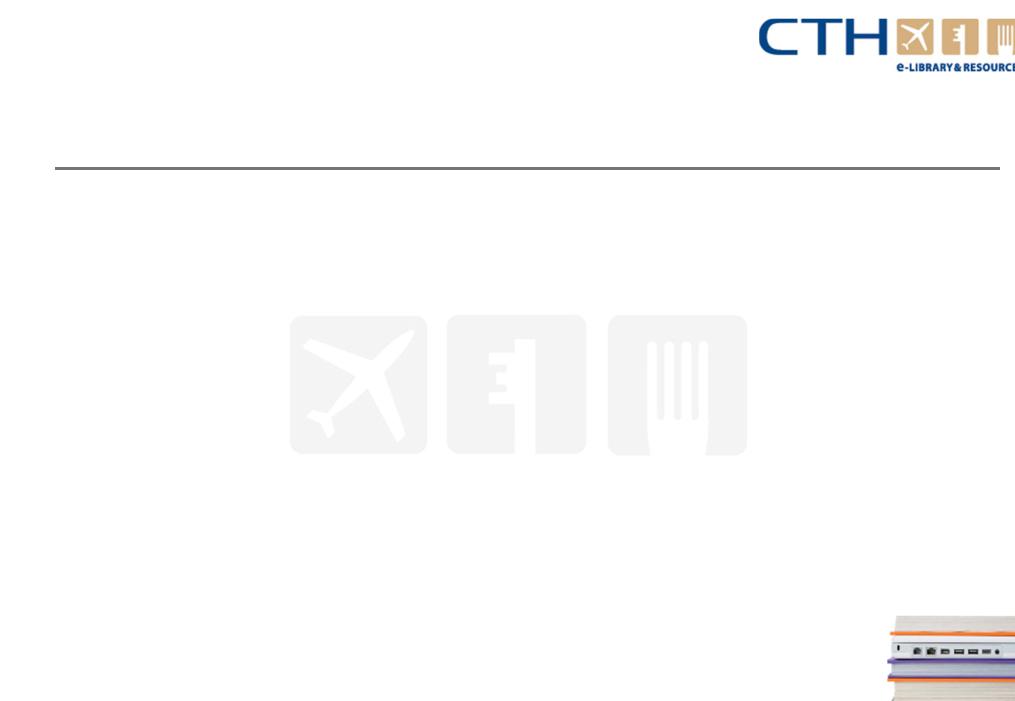
Chapter 8– Guest services and communications
Business services
4.Business services
4.1The executive floor or executive lounge
4.2The guests business centre
4.3Guest internet access and e-mail facilities
www.cthresources.com |
Page 464 |
|
www.cthawards.com |

Chapter 8– Guest services and communications
Business services
4.1 The executive floor or executive lounge
A hotel may offer a dedicated floor, block or area of the hotel specifically to suit their needs.
●It may include accommodation specially customised for business travellers, with extra space for work, in-room internet access (for laptop users) and extra power points (for equipment).
●Executive-grade rooms may also offer extra amenities for personal grooming (e.g.. clothes pressing, hair dryers, extra coat hangers), and perhaps also after-work relaxation and 'pampering' (e.g.. in-room movies, bathrobe and slippers, up-graded toiletries).
●Client entertainment and business networking areas may be provided (e.g.. in an executive lounge), for the exclusive use of guests of the executive floor. A lounge may offer clusters of chairs, allday refreshments (e.g.. tea and coffee) and snacks. The refreshments area may also offer continental breakfast for executive-floor guests in the morning, and evening bar service
●Executive facilities may also offer special services (private check-in and check-out at a separate reception desk or in the executive lounge) and dedicated concierge service), to facilitate corporate travellers.
●The executive floor may also house the hotel's business centre, with conference and meeting rooms, office equipment (phones, fax machine, photocopier, internet-linked computer terminals)
and even secretarial services, where required.
www.cthresources.com |
Page 465 |
|
www.cthawards.com |

Chapter 8– Guest services and communications
Business services
4.2 The guest business centre
Whether or not such extensive facilities are made available, on an exclusive basis, to designated executive travellers, the hotel may offer business centre facilities which are accessible to all guests on request.
A hotel business centre might offer services and facilities including:
●Desks or workstations
●Photocopying services or self-service photocopiers
●Incoming and out-going fax services or self-service fax machines
●Binders, laminators and other document preparation services /equipment
●Hire of a data projector (for presentations)
●Access to computer terminals with fast Internet access and peripherals (scanners and printers)
●Courier booking service (for sending urgent and valuable documents and parcels)
●Business stationery
●Meeting rooms and meeting areas
●Secretarial support services (e.g.. dictation, typing, document preparation, copying and so on)
www.cthresources.com |
Page 466 |
|
www.cthawards.com |
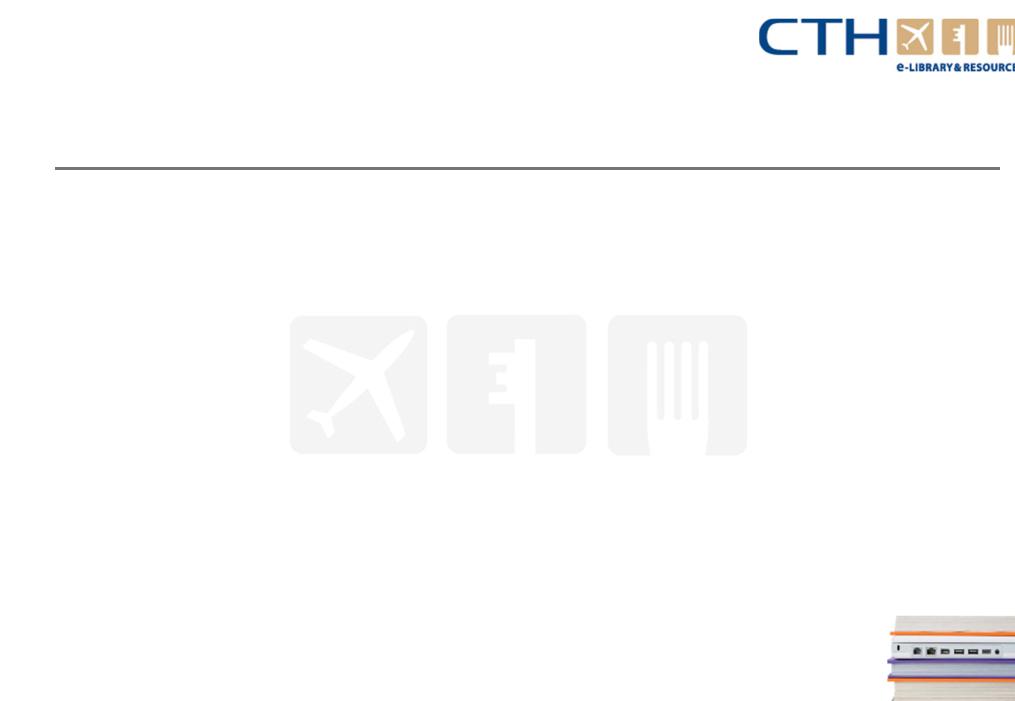
Chapter 8– Guest services and communications
Business services
4.3 Guest internet access and e-mail facilities
Many guests will want to use the Internet to stay in touch with friends and family; view and share digital holiday photographs; confirm flights; search for travel and local information; make travel and entertainment bookings; or simply supplement the in-room entertainment provided by the hotel.
Many larger hotels offer internet access and e-mail facilities, even if they do not have business centres.
●There may be Internet desks or 'kiosks' in the reception or lounge area of the hotel, allowing guests to use computer terminals at an advertised rate per block of time. This may be paid for with a credit card, inserted or swiped on logging on to the terminal, or may be logged and charged to the guest's account, by arrangement with reception.
●There may be in-room Internet access, with telecommunications points Into which guests can 'plug' their laptops. Use of this system may be automatically logged and changed to guests, in the same way as telephone calls using the hotel's system, on an advertised cost per-minute basis.
www.cthresources.com |
Page 467 |
|
www.cthawards.com |
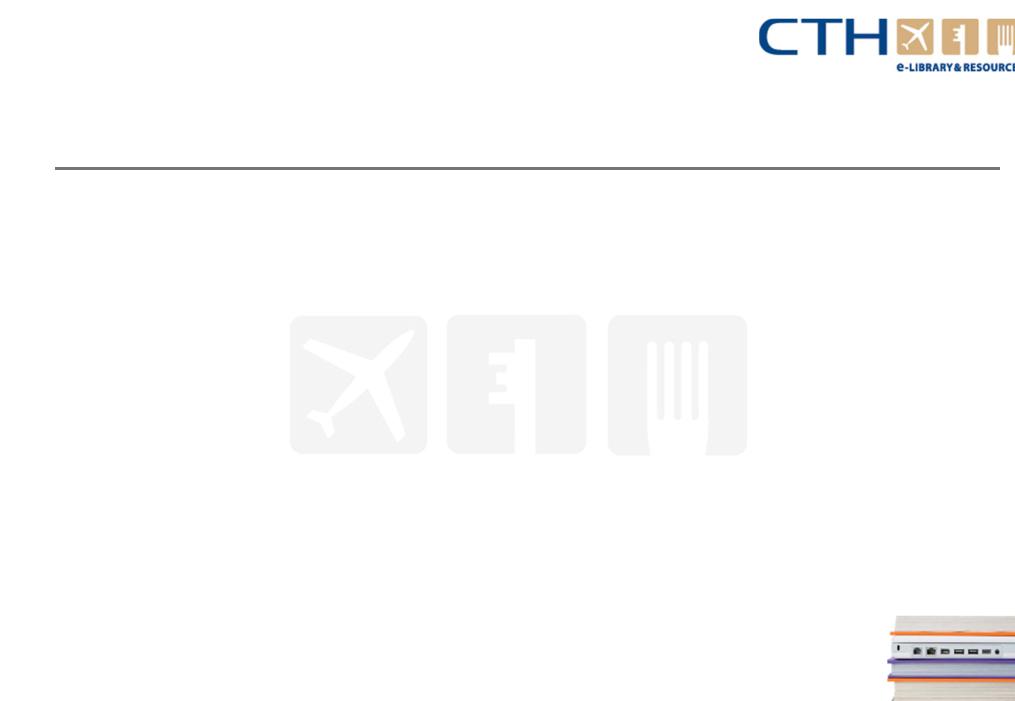
Chapter 8– Guest services and communications
Information services
5.Information services
5.1Types of information provided by front office
5.2Looking up information for guests
5.3Communication assistance for foreign guests
www.cthresources.com |
Page 468 |
|
www.cthawards.com |
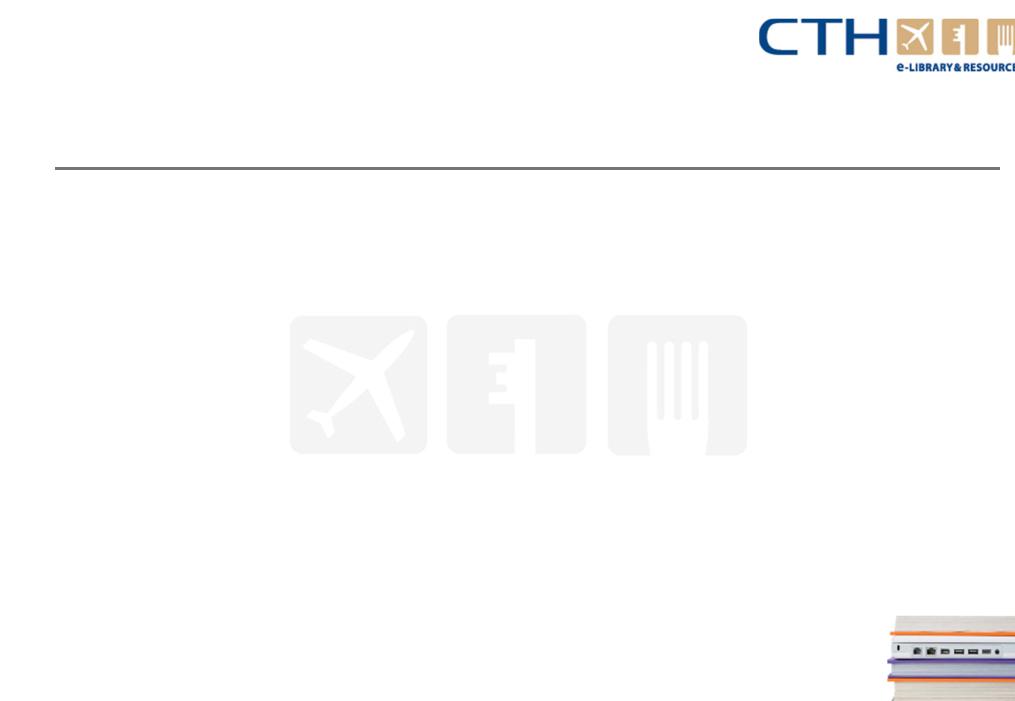
Chapter 8– Guest services and communications
Information services
5.1 Types of information provided by Front Office
Front Office staff will need a good level of knowledge about the hotel, its services, amenities, policies and charges. If guests want to know how to go about depositing articles in the hotel safe, or what time the restaurant opens, or where to find a courtesy phone, this information should be readily available.
Information about the local area, tourist attractions, activities and venues is often made available for guests at the enquiries desk, or via information displays in the reception area. Guests may be offered maps, tourist guides, brochures etc, or referred to the information on display (although not in such a way as to imply: 'Why ask me? The information's over there.')
Some information may not be quite so straightforward. Guests may want to know how long it will take to get to the nearest airport by taxi; or may ask for a restaurant recommendation in the local area; or want directions to a sporting or entertainment venue. Front Office staff should anticipate these kinds of questions, and be prepared to give appropriate answers.
Some service staff tend to give enquirers the answer they think they want to hear – even if the information is inaccurate or incorrect. Hotel Front Office staff should always think carefully about what will serve the interests of the guest best - and protect the hotel.
www.cthresources.com |
Page 469 |
|
www.cthawards.com |

Chapter 8– Guest services and communications
Information services
5.1 Types of information provided by Front Office continued…
Be honest if you don't know, are expressing an opinion, or can't guarantee your information - but offer Information where you think it will be helpful.
Front Office staff will not know the answer to all queries. (e.g.. A guest may want to know the times of services at a particular place of worship, or how to find a specialist shop or activity in the area, or the phone number of an emergency dentist. In such cases, the staff member should offer to look up or find out the Information for the guest: in Front Office directories; on the Internet; or by telephone enquiry.
www.cthresources.com |
Page 470 |
|
www.cthawards.com |
